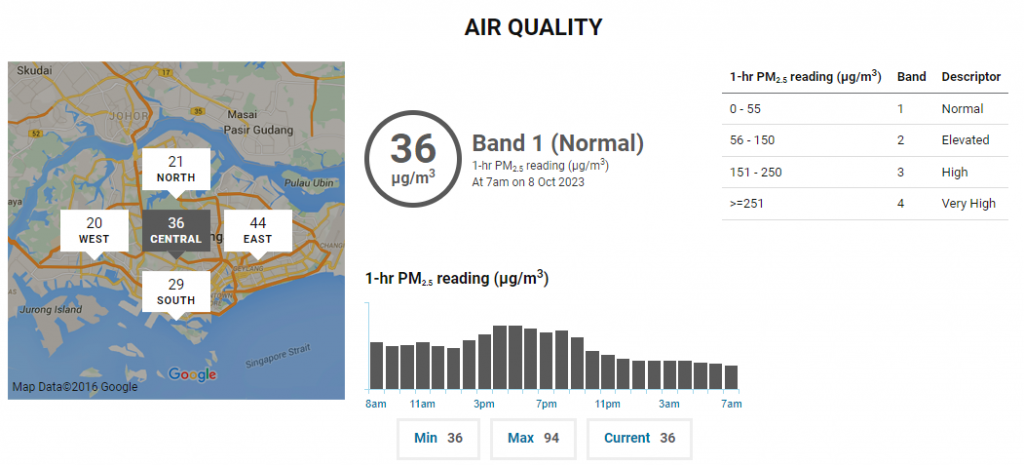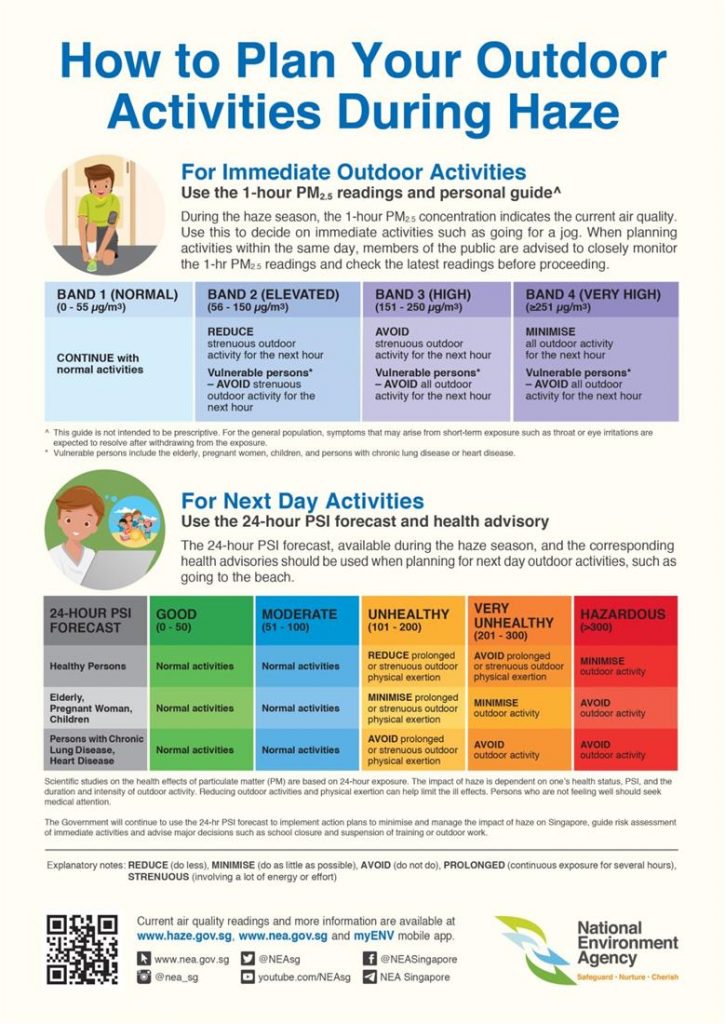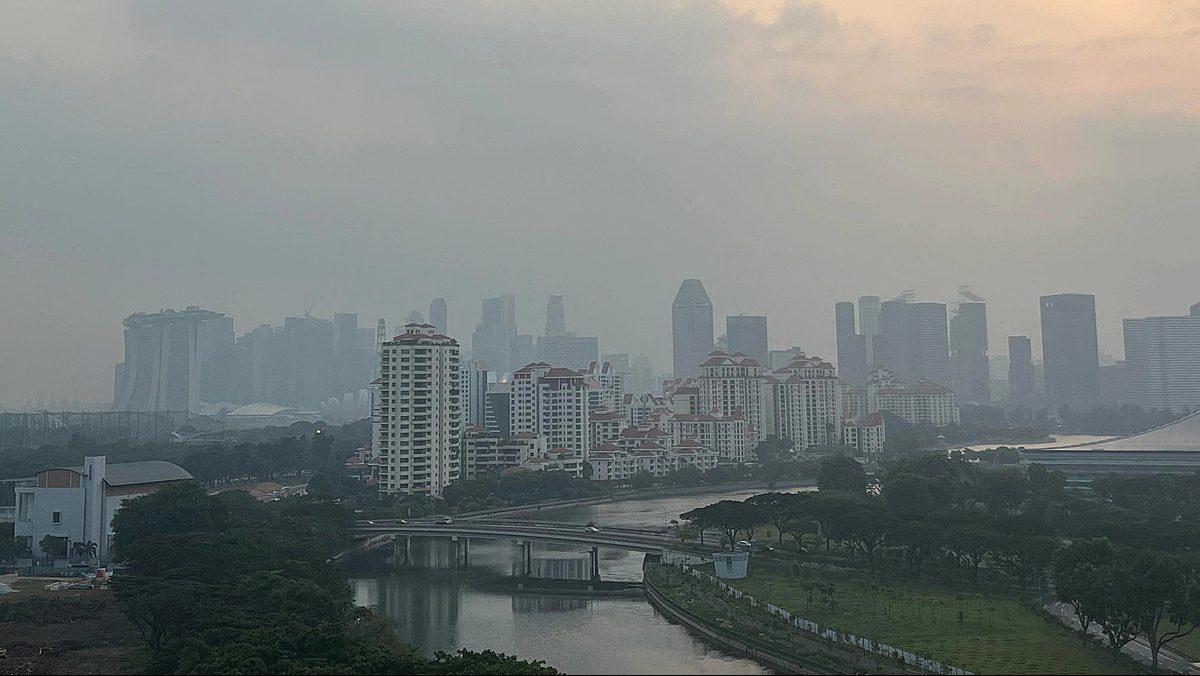SINGAPORE: The Singapore haze situation persists, with air quality levels entering the unhealthy range today, according to data from the National Environment Agency (NEA).
As of 7 am on Oct 8, Singapore’s Central and East regions recorded PSI values of 109 and 111, respectively, signifying unhealthy air quality. In contrast, the North, West, and South regions reported moderate air quality levels, with PSI values of 69, 64, and 91, respectively.


The 1-hour PM2.5 readings for all regions remained within normal values, ranging from 20 to 44.


This concerning development follows the NEA’s report that the 24-hour Pollutant Standards Index (PSI) entered the unhealthy range on Oct 7. The East region exceeded a PSI of 100 at 7 am, followed by the Central region at 11 am.
In response, the Government’s interagency Haze Task Force (HTF), led by the NEA, has activated action plans and issued critical health advisories to safeguard public health.
NEA has issued vital health advisories to guide the public in minimizing the health risks associated with haze exposure. The impact of haze varies depending on individual health, PSI levels, and the duration and intensity of outdoor activities.


To stay safe, everyone is encouraged to limit outdoor activities, stay well-hydrated, and ensure access to necessary medications, especially for those with chronic heart and lung conditions. Vulnerable groups, including the elderly, pregnant women, children, and individuals with chronic health conditions, are urged to seek immediate medical attention if they experience symptoms or feel unwell.
The Ministry of Health (MOH) has collaborated with healthcare institutions, including public hospitals, polyclinics, and nursing homes, to implement haze preparedness measures. These measures include using air purifiers and fans to enhance indoor air quality.
Healthcare professionals are closely monitoring patients for any potential health effects due to haze exposure and will provide appropriate medical intervention when necessary.
NEA advises that N95 masks are not required for short exposures, such as commuting or indoor activities. However, for individuals who must spend extended periods outdoors, wearing an N95 mask is recommended when the forecasted air quality falls within the Hazardous range (PSI > 300).
The elderly, pregnant women and individuals with severe lung or heart problems should consult their doctors for guidance on mask usage.
For the latest information on air quality readings and health advisories, particularly for vulnerable groups, NEA will provide daily haze advisories.
These advisories will include the 24-hour PSI forecast, assisting the public in planning their activities and events for the next 24 hours.
You can find these updates on NEA’s website and the myENV app.

